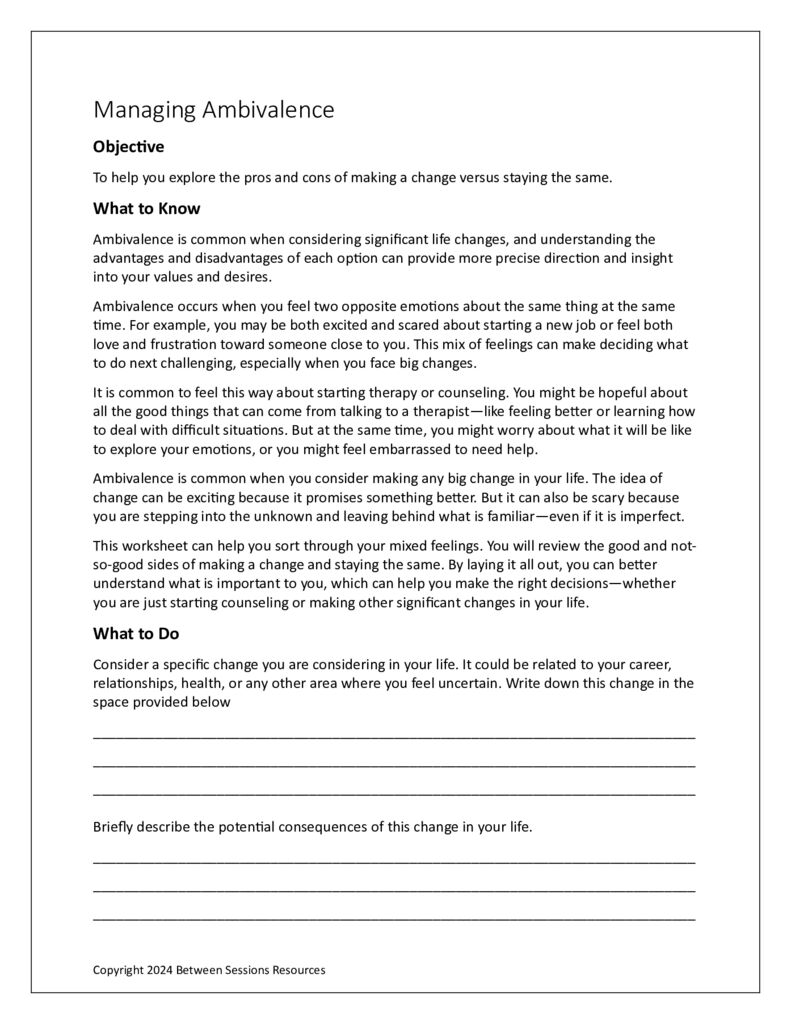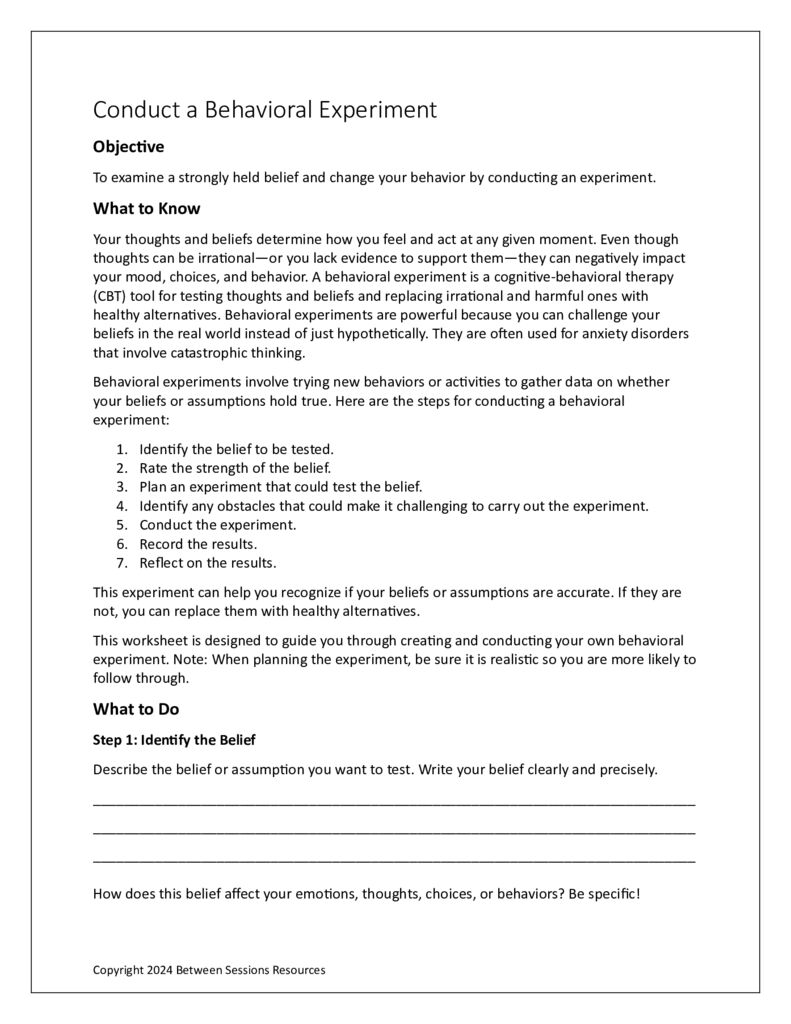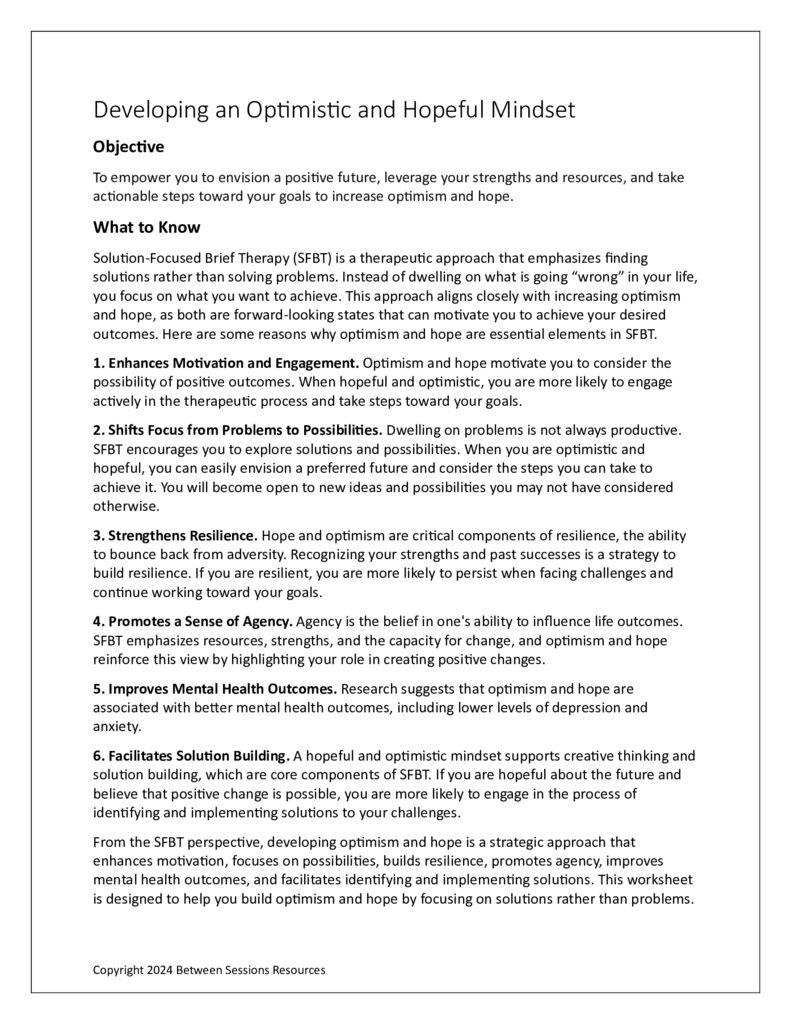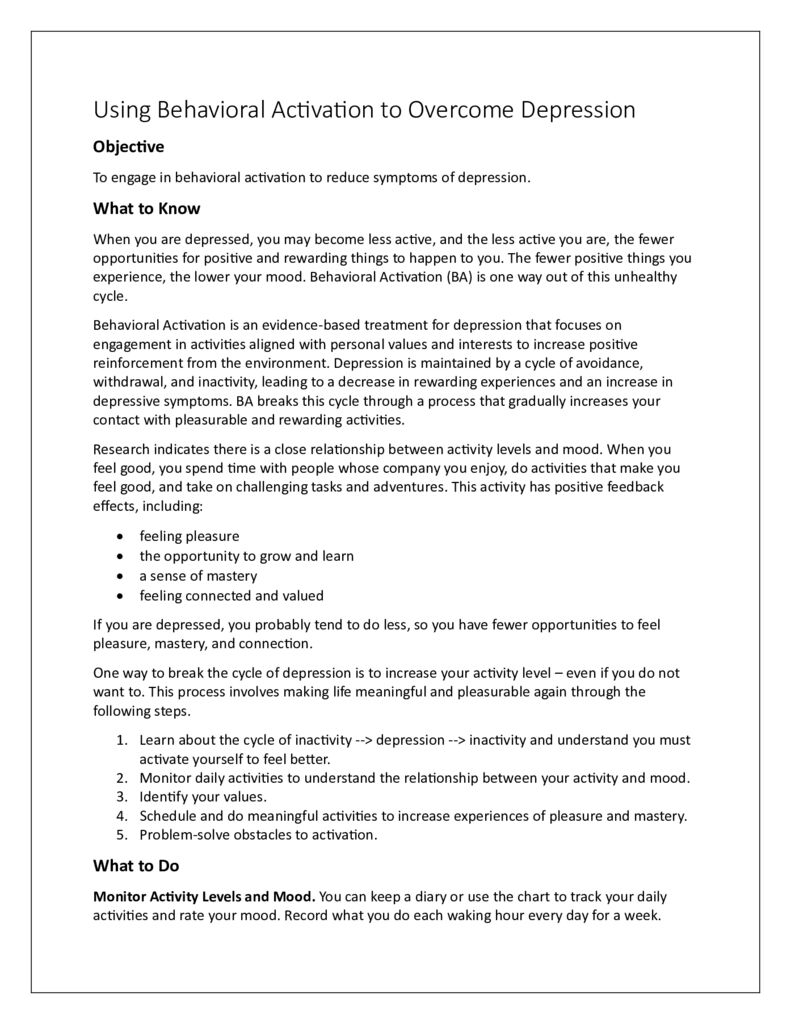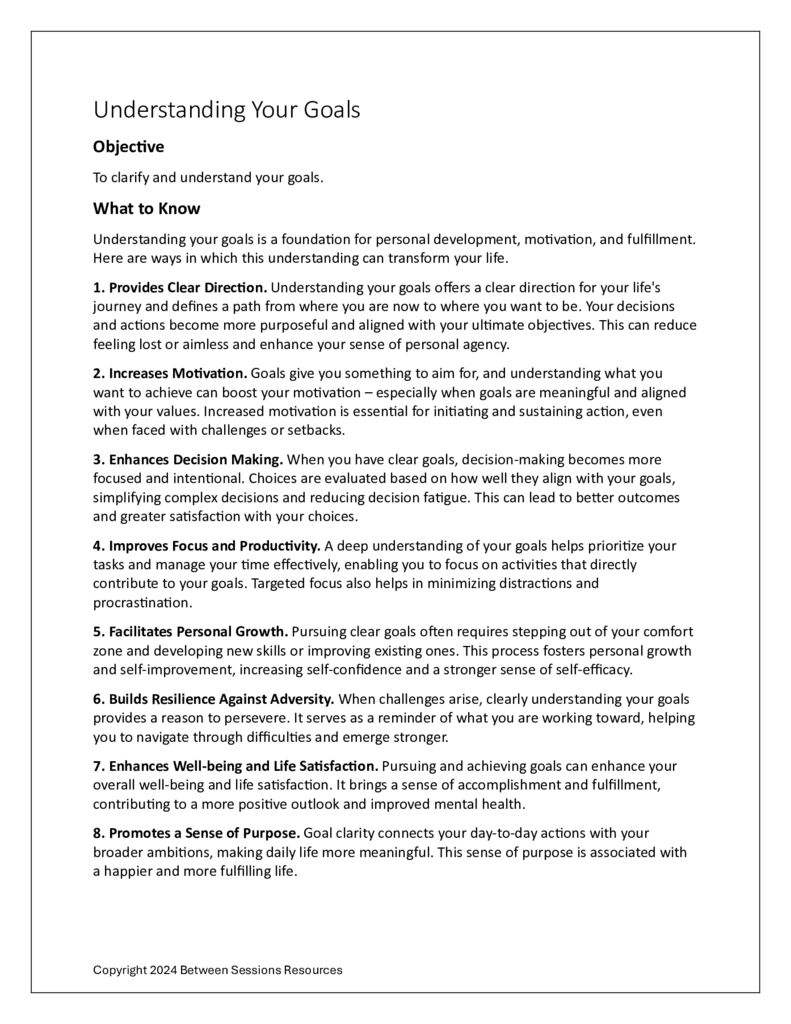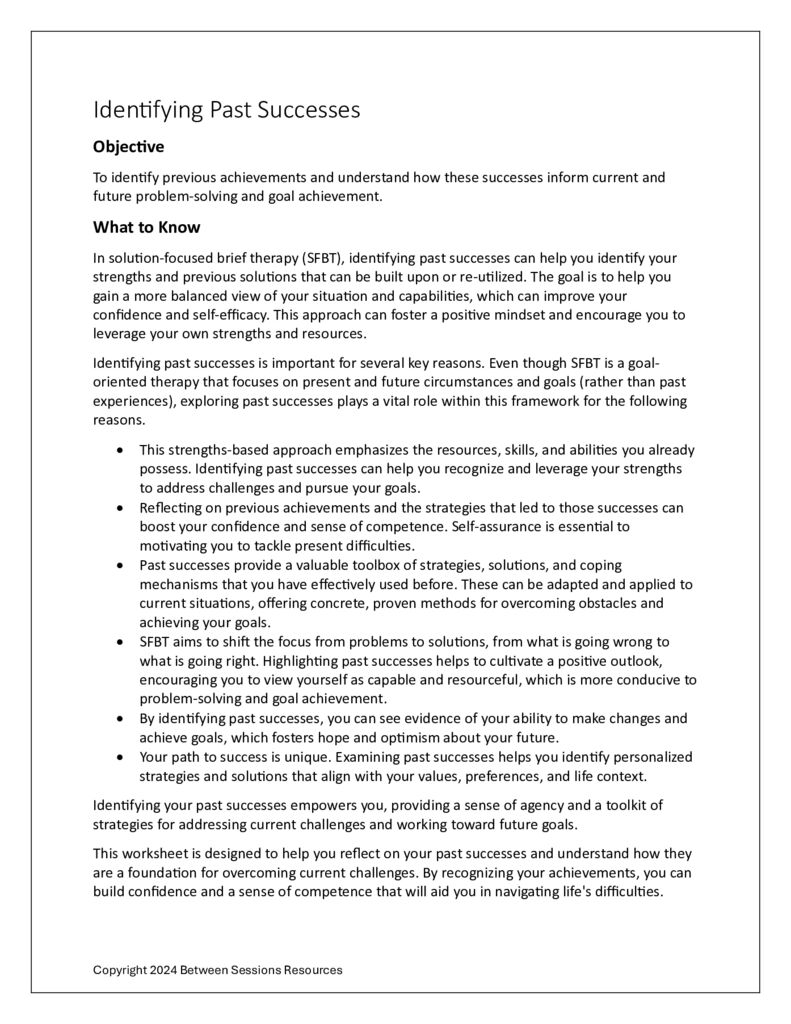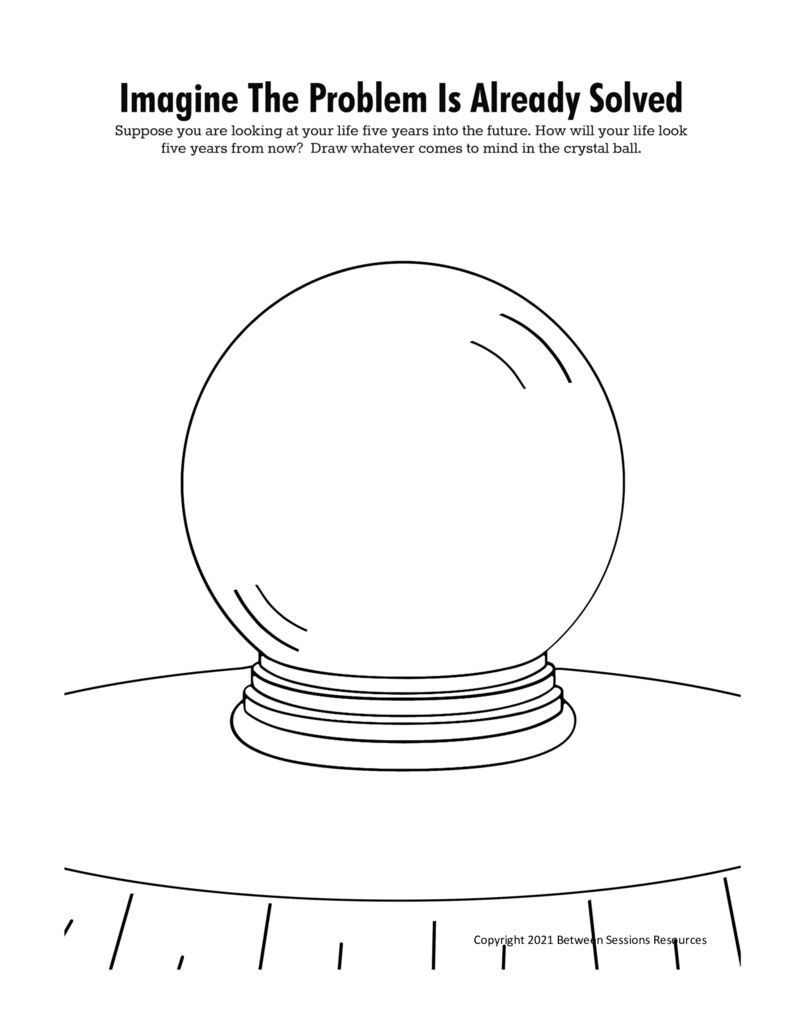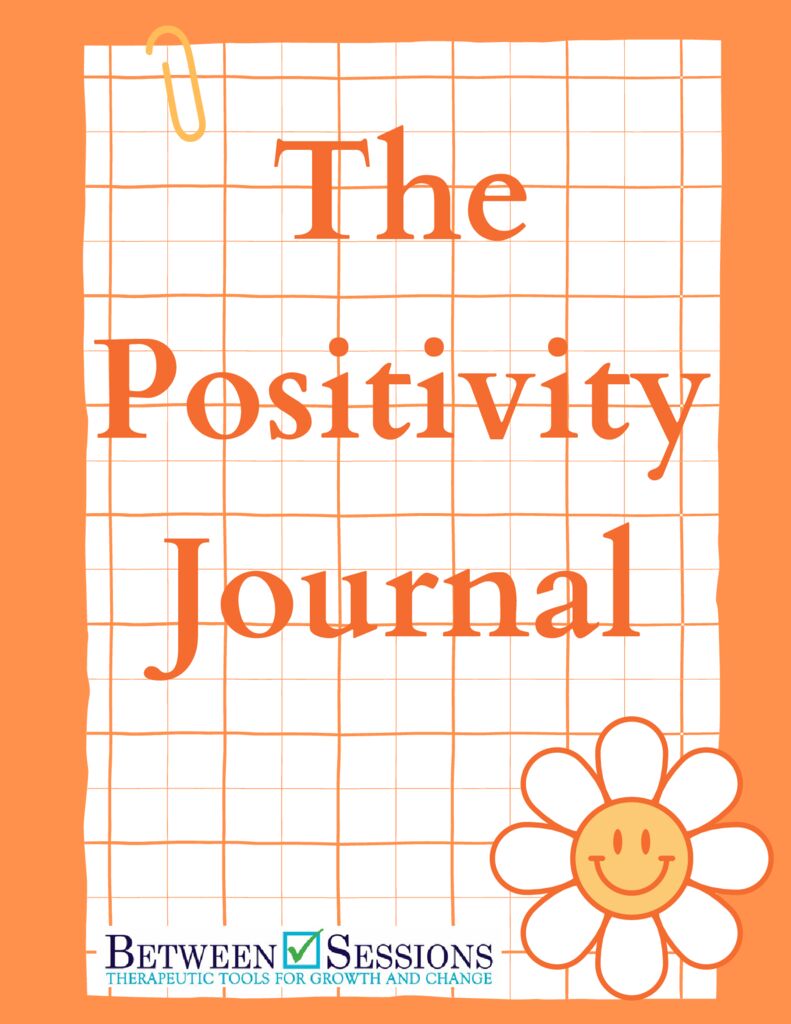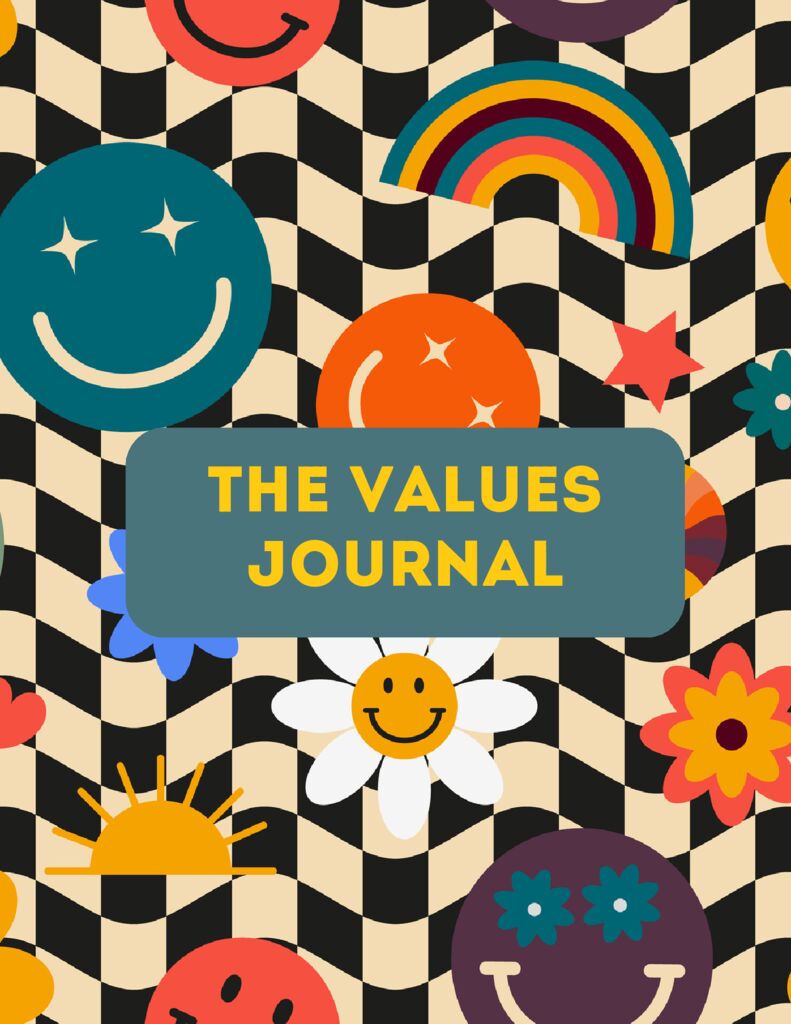This worksheet encourages people to explore how they deal with ambivalence in their lives thinking about the pros and cons and the consequences of making changes. It also helps people identify the barriers to change and consider how they can be overcome. (0424, depression, anxiety, relationships, decisions, problem-solving, CBT)
This worksheet challenges people to test their beliefs about their problems by trying new behaviors. The worksheet takes people through a systematic approach to trying new behaviors, including anticipating challenges and obstacles, observing changes, and analyzing the results of the “experiment.” (0424, behaviors, solution-oriented therapy, CBT)
This approach to increasing optimism is based on Solution-Focused Brief Therapy (SFBT). The worksheet is designed to increase motivation, shift a person’s focus from problems to possibilities, stimulate creative thinking, and more. (0424, hope, depression, Solution Focused Therapy, agency)
Behavioral Activation is an evidence-based treatment for depression that focuses on engagement in activities aligned with personal values and interests to increase positive reinforcement from the environment. Doing things when you are depressed is not easy, but this worksheet helps people understand the cycle of inactivity and depression, monitor their daily activities, schedule and do meaningful activities, and problem-solve obstacles to behavioral activation. (0324, DBT, behavioral psychology, depression)
This worksheet, based on Solution-Focused Brief Therapy (SFBT) is intended to help people see the importance of setting realistic goals. It asks people to envision how they want their future to look and then write 3 realistic goals that can guide their decisions and behaviors. It also asks them to think about people who can help them achieve their goals and designate small steps with each one bringing them closer to their goals. (0324, Solution-Focused Brief Therapy, goal-setting, problem-solving)
This worksheet is from Solution-Focused Brief Therapy (SFBT) and is designed to help people apply strengths they have used in solving past problems to their current situations. The worksheet explains why this process can be so helpful and presents a series of questions to explore how past solutions have helped. (0324, solution-focused therapy, problem-solving, decision-making)
The Miracle Question is a powerful tool used in Solution-Focused therapy to bypass limitations and obstacles. It involves imagining an ideal future where all your problems are solved and your goals are achieved. Then, you identify the steps to make this vision a reality. This worksheet introduces the concept of the Miracle Question as it pertains to personal growth, relationships, career, health, and well-being. (0324. solution-focused, SFBT)
This Solution-Focused therapy technique asks people to think in the future about what their lives will be like if their immediate problems were solved. (0324. SFBT, solutions, art therapy,)
This journal is designed to use the principles of positive psychology to help people develop a more optimistic view of the world. The daily worksheets are designed to help people identify their mood, develop the habit of gratitude, pay attention to positive events, and work towards their goals. The Journal consists of 31 pages for a month’s worth of entries. (0224, positive psychology, daily journal, optimism, CBT).
This 60-page journal encourages people to explore their values and how they affect their day-to-day choices and behaviors. This is a great way to combine the techniques of values clarification and journaling. The journal can either be downloaded and printed out or filled out online using our Psychology Forms Filler or Virtual Counseling Rooms. (0224, journal, ACT, Acceptance and Commitment Therapy).

